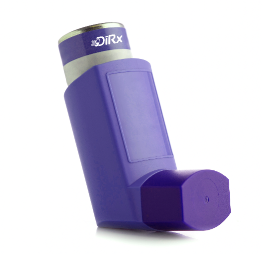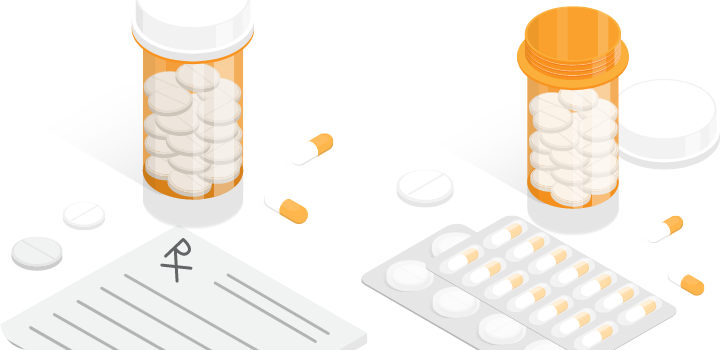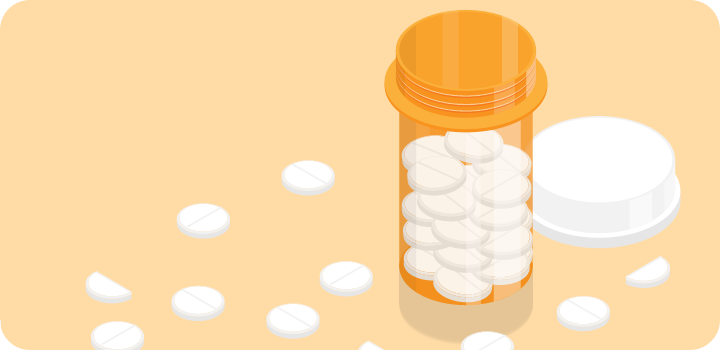April 25, 2022 | 4 minute read
In many parts of the country, pollen seems to start up before you have even packed up your winter clothes. That is because pollen allergy season can start as early as February and can last through August or even September. To prepare, we have got some tips for things that can help to ease pollen symptoms. There are three main types of pollen that cause our seasonal allergies:
-
Tree pollen: This pollen is the first to appear each year in the United States and it is responsible for most spring pollen allergy symptoms.
-
Grass pollen: In the Northern U.S, grass pollen usually appears in the late spring or early summer, and in the South grass may trigger symptoms throughout the year.
-
Weed pollen: Ragweed allergy is the most common and affects 15% of Americans according to the Asthma and Allergy Foundation of America. Weed pollen appears in the late summer and fall, grows in 49 states and can travel hundreds of miles in the air, making it tough to avoid.
What are the symptoms of a pollen allergy?
People with pollen allergies only have symptoms when the pollens they are allergic to are in the air. Symptoms typically include:
-
Runny nose
-
Stuffy nose
-
Sneezing
-
Itchy nose, eyes, ears, and mouth
-
Red and watery eyes
-
Swelling around the eyes
-
Allergic asthma (If you have asthma and pollen makes your asthma worse)
What can you do to prevent an allergic reaction to pollen?
-
Limit outdoor time when pollen counts are high. Keep your windows closed. If you are going outside wear a hat to keep pollen off your hair, and sunglasses to keep pollen out of your eyes. When you come in, rinse your face and nostrils. A mask can help with pollen inhalation, as can changing your clothes when coming back indoors.
-
Start taking allergy medicine before pollen season begins. Most allergy pills and sprays work better when taken daily, not just at the start of symptoms.
-
Shower at night. Showering and washing hair before bed will help ease nighttime and early-morning pollen allergy symptoms.
-
Wash often. Wash bedding often in hot, soapy water to remove those stubborn allergy particles that do make it into your room. Avoid hanging clothes or sheets on a clothesline where they can get covered with pollen.

-
Keep the windows closed. Warmer weather might make you want to open the windows at home or roll them down while driving. Instead, use central air conditioning or air cleaners with certified asthma and allergy friendly filters or HEPA filtration to reduce indoor airborne allergens that may enter your home through doors, windows, on your clothes, and on pets.
-
Keep pets clean. If you are allergic to pollen, your pet may be tracking it into the house and into the bed, so increase baths and fur brushing for your pet.
-
Keep an eye on pollen counts. Many local weather reports will give pollen counts or forecasts. Try to stay inside when pollen counts are high, but if you’re planning to exercise outdoors, do so in the afternoon or evening when pollen counts tend to be lower. If your symptoms are severe and long periods of exposure are unavoidable, you may want to wear a pollen mask. You can visit websites like pollen.aaaai.org for reports on your area.
What is the treatment for pollen allergy?
Cutting down on contact with pollen is the first line of defense. In addition, both over-the-counter products and the allergy medicines carried by DiRx can help reduce symptoms. Below are the most common treatments:
-
Nasal corticosteroid sprays reduce swelling in the nose and block allergic reactions. They are the most effective medicine type for allergic rhinitis because they can reduce all symptoms, including nasal congestion and have few side effects.
-
Antihistamines come in pill, liquid, or nasal spray form. They can relieve sneezing and itching in the nose and eyes as well as reduce a runny or stuffy nose. Look for a long-acting, non-drowsy antihistamine.
-
Decongestants are available as pills, liquids, nasal sprays, or drops. They help shrink the lining of the nasal passages and relieve nasal stuffiness but are generally only used for a short time. Check with your health care provider or pharmacist before using decongestants if you have high blood pressure, glaucoma, thyroid disease, or trouble urinating, as they may aggravate these conditions and/or interact with other prescription medicines.
-
Leukotriene receptor modifiers block the action of important chemical messengers (other than histamine) that are involved in allergic reactions.
-
Cromolyn sodium is a nasal spray that blocks the release of chemicals that cause allergy symptoms, including histamine and leukotrienes. This medicine has few side effects, but you must take it four times a day.
If you have a pollen allergy and do not get complete relief from medicines, talk with an allergist about the potential benefits of allergy shots. Allergy shots can be a long-term solution to allergy problems for many people. However, for most people a combination of preventive measures and over-the-counter or prescription medicines will do the trick, so you can continue to enjoy life, even during allergy season.

Breathe easy with DiRx!
We carry a comprehensive list of low-priced, FDA-approved generic allergy-related medicines.
In 2022, we added over 100 new medicine offerings, so if yours was not available in the past, be sure to check again.

NEW PRICE! We are now
offering Albuterol (generic Proventil)
at the low price of $19/month supply.
Reviewed by: Rima Arora, PharmD, RPh, DiRx Director of Pharmacy
Breathe easy with DiRx!
We carry a comprehensive list of low-priced, FDA-approved generic allergy-
related medicines.
In 2022, we added over 100 new
medicine offerings, so if yours was not available in the past, be sure to check
again.

NEW PRICE! We are now offering Albuterol (generic Proventil) at the low price of $19/month supply.
Search for your medicine and start saving

EUTHYROX®, a branded
Levothyroxine is also available.
Tap here to know more
Buying Kyzatrex for the first time?
Use code FREETRIAL to get a 1 month supply of Kyzatrex for FREE























